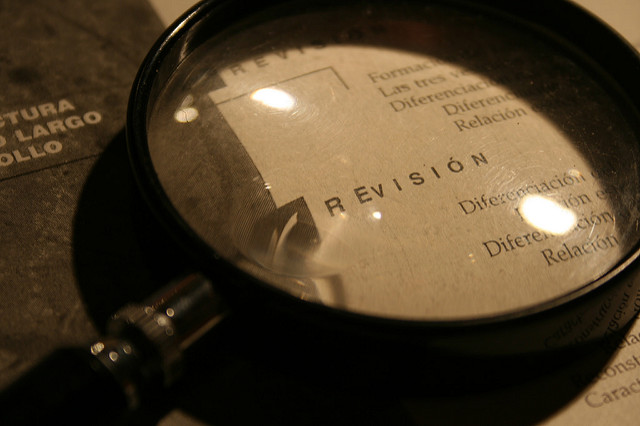Lily Hoang’s Revision Workshop
This is a series of posts starting with Lily Hoang on how she teaches revision workshops, and then including her students’ experiences of the workshop. I’ll leave Hoang’s post at the top and post a student post below. The first student post is by Brady Richards. As always, if you’d like to contribute a guest post, you can reach me at m [dot] salesses [at gmail etc.]
* * *
From Lily Hoang, author of A Bestiary, Changing, and other books:
WHEN I TEACH AN MFA WORKSHOP, I run three rounds of workshop. I have various permutations story requirements, but the last time I taught it, the three were: a call for submissions (for either Fiction International or Tin House); a one-on-one workshop; and a revision workshop. The students responded really positively to all three.
I’m only going to be talking about the revision here. But let me start by saying that in the traditional workshop, the writer leaves with a bunch of conflicting advice and critiques and no real instruction on what to do—like, actually what to do. They’re just expected to have a revision—as if by magic!—for the final portfolio, maybe. So, this was my way around that whole business.
For the revision workshop, students were required to submit both a story that has been workshopped (in its original form) and its revision. Students were asked to provide marginalia for the revision only, but their end notes were to foreground the process of revision and background the end product. Discussion in class was also focused on the writer’s process of revision.
As the instructor, this workshop was revelatory. Not only was it impressive to witness how my students approach revision, it was also humbling to participate in this development.
So, to be honest, some students made radical revisions, where the revision was almost unrecognizable from the original, and other students did line edits. For the latter, the workshop was surprisingly harsher, e.g. pointing to weaknesses in the original that were not addressed adequately in revision. Regardless, the process was thrilling and elucidating.
Teaching a revision workshop entirely changed my approach to revision. Mind you, I’ve written books, like quite a few, and I thought I understood revision, but I didn’t. Whereas it’s still something of a mystical act for me, my students taught me how to re-conceptualize. And they gave me—and each other—practical approaches and theoretical approaches and sometimes irrelevant approaches, but mostly, I think we all gained a few strategies to approach the daunting task of revision.
*
From Brady Richards:
IN THE FALL OF 2015 (my first semester in New Mexico State’s MFA program, I should add), I participated in Lily’s revision workshop—the third and final of a series of different workshop experiences for me. By that time, I was ready to get weird but not to leap into the minds of my peers and tinker with their processes, or them mine. I’m glad I did. As a student, the revision workshop was instrumental in my development as a writer by strengthening two distinct muscles. The first: to critique the efficacy of my peers’ vastly different revision processes. The second: to honestly face and amend my own.
First off, critiquing is, for me, a familiar act. This is working. That is flopping. What if you… Normal critique stuff, where a piece can be safely divorced from its author, feelings spared. Critiquing an author’s revision process is very different. Intrusive? Maybe. Voyeuristic? Depends on the critic. But it was illuminating. Can a good process lead to a dysfunctional story? Yes. Can a dysfunctional process lead to a good story? Sure. While these phenomena were noted, they became the background for a larger concern: Is my process limiting the writer I am and could become? You can answer that one yourself.
Second, it is difficult to overestimate the value of having your mind reflected back to you, especially the often-murky depths of your own creative writing process. Lily’s revision workshop did just that, in both specific and general ways. For my story, I took an old piece that was limping along and essentially applied a style filter over it, the result being something, oh, I don’t know, jazzier. Of course, I wasn’t aware I had done this; I thought I had done something deeply revisionary. So when my peers stated otherwise, I was shocked. This story-specific insight (really useful for that story, by the way) was indicative of a larger pattern, which I suddenly noticed in stark relief. I realized that a large part of my revision process was lateral in nature, not progressive. I was moving stuff around without going forward. Only after this tendency was revealed, I able to improve my process, as well as see this tic as anything but awful. Months later, I wrote a story that took a scenario and draped a sequence of filters over it, this time intentionally and to effect.
I am thankful I participated in Lily’s revision workshop. I hope others get the chance to explore this model, too.
—
Photo: Flickr/Angel Arcones

